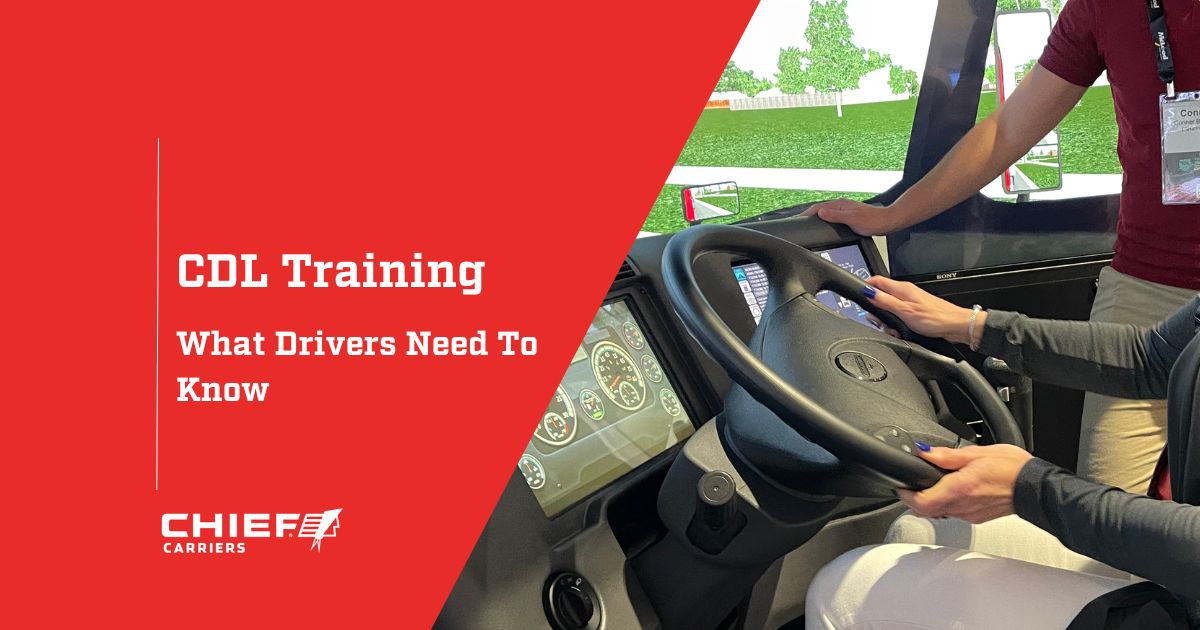CDL Training for Truck Drivers
Are you looking to get your CDL? What are the things you need to look out for as a driver? In this episode of Driven Too Far we cover what you need to know about CDL training. Ed Lewis and Ryan Cook are truck driving trainers out of Northeast Community College; they join Andrew and talk about what drivers should expect during CDL training.
They discuss the misconceptions and what that first year on the road will look like for new drivers. This is a must listen to episode if you’re a driver needing to know about getting your CDL.
Welcome back to another insightful journey into the heart of the trucking world.
Today, we explore a topic crucial to every trucker’s journey: CDL training.
This essential stepping stone sets the stage for a successful career on the road.
About Commercial Driver’s License
In the latest episode of “Driven Too Far,” we had the pleasure of discussing this with Ed Lewis and Ryan Cook, seasoned instructors from Northeast Community College.
Their expertise shed light on the intricate process of obtaining a Commercial Driver’s License (CDL), a fundamental requirement for anyone aspiring to navigate the vast highways of our nation.
CDL training is more than just a hurdle to clear; it’s the backbone of safety and competence in trucking.
As we unpacked during our conversation, this training ensures that drivers are not only proficient in handling their vehicles but also well-versed in the regulations that keep our roads safe.
The significance of such education cannot be overstated, as it directly impacts the well-being of truckers and all road users.
It’s not just about new entrants aiming to make their mark; even seasoned veterans can find new insights and refresh their knowledge through continued education.
This blog bridges the gap between our podcast discussions and your daily experiences on the road, offering practical advice and deeper insights into the world of CDL training.
Why is CDL training a cornerstone for aspiring truckers, and how does it shape the future of road safety and professional growth?
Let’s explore these questions together, as we embark on a detailed examination of what it takes to thrive in the trucking industry.

Understanding CDL Training
Understanding the path to becoming a licensed truck driver through CDL (Commercial Driver’s License) training is a journey that begins with foundational steps and evolves with dedication and hard work.
The process kicks off with obtaining a commercial learner’s permit (CLP), a crucial step that allows aspiring drivers to practice on public roads under the supervision of a licensed CDL holder.
This initial phase requires applicants to pass a series of written exams covering general knowledge, air brakes, and combinations, depending on the class of CDL they seek.
Furthermore, the role of physical exams cannot be understated, as drivers must meet health standards that ensure safety on the road, not just for themselves but for all road users.
Selecting the Right Training School
Selecting the right training school is another pivotal decision in a trucker’s career.
Prospective students should consider schools that offer comprehensive programs, balancing classroom instruction with hands-on driving practice. This blend ensures that students not only learn the regulatory and theoretical aspects of trucking but also gain the practical skills necessary for safe and efficient driving.
Researching schools’ reputations, the experience of their instructors, and the success rates of their graduates can guide students to make informed decisions that align with their career goals.
The commitment required during the CDL training period is significant. Candidates must dedicate themselves fully, often balancing the demands of the training schedule with personal and financial responsibilities.
Training programs can span several weeks to months, during which students may need to forego full-time employment. This sacrifice underscores the importance of being prepared for the intensity of the program, highlighting the dedication required to pursue a career in trucking.
Ultimately, the journey to obtaining a CDL is both challenging and rewarding.
It lays the foundation for a successful career in the trucking industry, emphasizing the importance of safety, skill, and professional integrity.
As students embark on this path, their choice of training school and their commitment to the training process will significantly influence their future success as professional truck drivers.

Financial Considerations and Support Systems
Embarking on CDL training is not just a journey of skill acquisition but also a financial commitment.
Many aspiring truck drivers face the hurdle of funding their education while managing the reality of potential income loss during the training period.
CDL training programs, while essential for entering the trucking industry, can be costly, and not all candidates can afford to leave their jobs for the duration of the course.
This financial strain can deter many hopeful individuals from pursuing their trucking licenses, highlighting the need for effective financial planning and exploration of funding options.
One ray of hope for many is the availability of sponsorship opportunities. Some trucking companies offer to sponsor the training of potential drivers, covering the cost of the program in exchange for a commitment to work with the company for a specified period after obtaining the CDL.
Sponsorship Opportunities
These sponsorships can significantly alleviate the financial burden of training, making it a viable option for many.
However, it’s crucial for candidates to thoroughly understand the terms of these agreements, ensuring they align with their career goals and personal circumstances.
Having a robust support system in place is invaluable during this time. Support can come in various forms, from family and friends offering emotional encouragement to financial advice and assistance.
Additionally, some training schools provide resources for financial aid, including grants and loans specifically designed for vocational training.
Prospective students should explore these options thoroughly, seeking guidance from school advisors who can help navigate the complexities of financial aid.
Planning financially for the CDL training period involves not only securing the necessary funds to cover the cost of the program but also budgeting for living expenses during this time.
Candidates may need to save money in advance, reduce expenses, or find flexible work options that allow them to balance training and financial needs.
This level of planning and preparation underscores the importance of considering all aspects of the training journey, ensuring that the path to becoming a licensed truck driver is both achievable and sustainable.
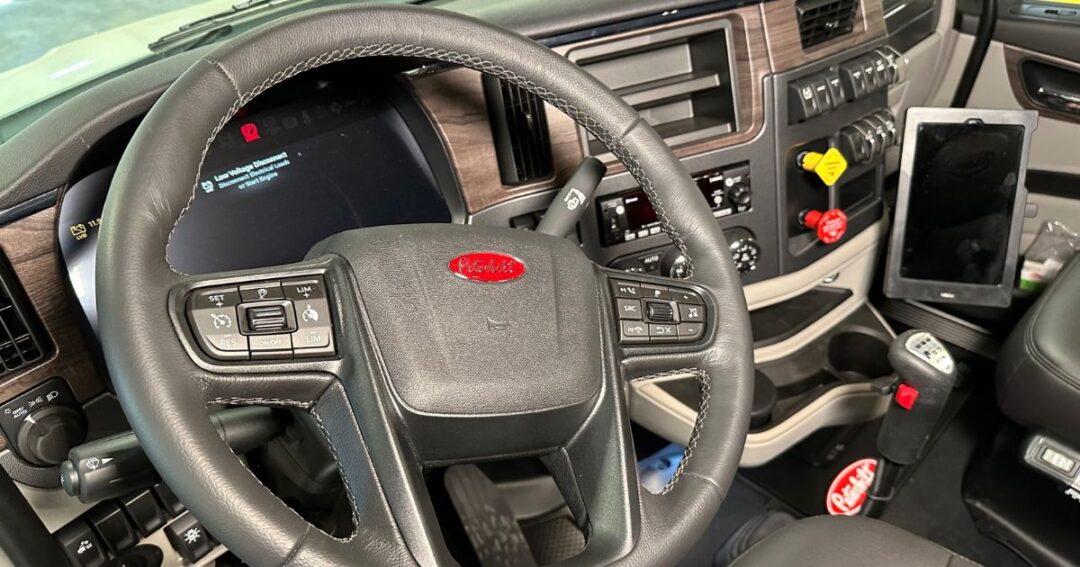
Practical Training and Classroom Learning
CDL training is a comprehensive blend of practical driving experience and classroom learning, each playing a pivotal role in preparing students for a successful career in trucking.
This balanced approach ensures that students not only gain the hands-on skills necessary for operating a commercial vehicle but also understand the theoretical aspects of the profession, including regulations, safety protocols, and maintenance knowledge.
The fusion of practical and theoretical learning creates a well-rounded curriculum designed to equip future truckers with the knowledge and skills they need to navigate the complexities of the road safely and efficiently.
In the classroom, students dive into the world of trucking regulations, learning about the laws that govern the industry. This includes a deep dive into the Federal Motor Carrier Safety Regulations (FMCSRs), which cover everything from hours of service to vehicle maintenance requirements.
Additionally, safety is a major focus, with courses on defensive driving techniques, hazard recognition, and emergency response.
This theoretical knowledge forms the foundation upon which students can build their practical skills, ensuring they understand the importance of safety and compliance in their future careers.
On the practical side, students get behind the wheel under the supervision of experienced instructors.
This hands-on training covers a wide range of driving conditions and scenarios, from navigating city traffic to handling a truck on highways and rural roads.
Students learn about pre-trip inspections, load securing, and maneuvering techniques, such as backing up and parking. This direct experience is invaluable, providing students with the confidence and skills they need to operate a commercial vehicle safely.
The balance between practical training and classroom learning in CDL training cannot be overstated.
It ensures that graduates are not only capable drivers but also knowledgeable professionals aware of the responsibilities and regulations of the trucking industry.
By covering both the hands-on and theoretical aspects of trucking, CDL training programs prepare students for the challenges they will face on the road, making them safer and more effective drivers.
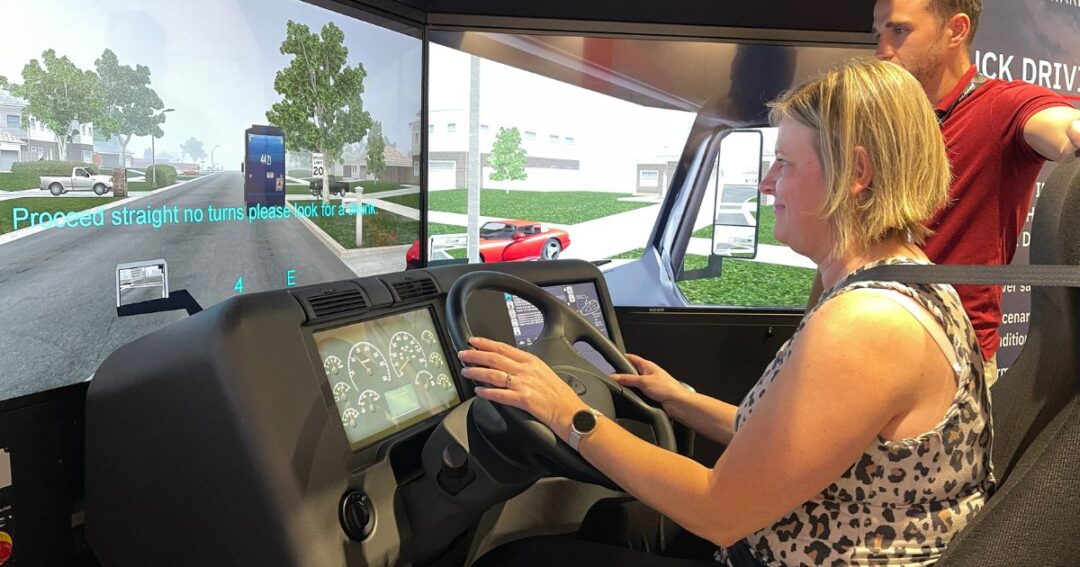
Career Pathways Post-Training
Navigating the career pathways in the trucking industry begins even before CDL training concludes, with many schools offering job placement services to connect graduates with potential employers.
This process often includes partnerships with trucking companies actively seeking new drivers, showcasing the mutual benefits of such collaborations.
For the student, this means access to job opportunities right out of training, and for companies, a steady stream of qualified, newly licensed drivers ready to hit the road.
Sponsorship programs, where companies finance a student’s CDL training in exchange for a commitment to work for them for a predetermined period, also play a significant role.
These sponsorships not only alleviate the financial burden of training but also provide a direct pathway to employment, ensuring that students have a job waiting for them upon obtaining their license.
Career Fairs
Recruitment efforts by trucking companies are a testament to the industry’s growing demand for skilled drivers.
Career fairs, on-site recruitment at training schools, and partnerships with educational institutions are common strategies employed to attract new talent.
These efforts highlight the industry’s commitment to bringing in fresh faces and underscore the importance of CDL training as a stepping stone to a rewarding career in trucking.
The trucking industry offers a wide array of career opportunities, ranging from local driving positions to long-haul routes that crisscross the country.
Local drivers typically operate within a specific region, allowing for regular home time, while long-haul drivers may spend weeks on the road, covering vast distances.
Each type of driving has its own set of challenges and rewards, catering to different lifestyle preferences and career goals.
Moreover, the trucking industry is not limited to freight transport; specialized driving jobs, such as tanker hauling, flatbed loads, and refrigerated goods transport, offer additional avenues for drivers to explore.
Understanding the diverse career opportunities within the trucking industry empowers CDL graduates to make informed decisions about their professional paths.
Whether opting for the stability of local routes or the adventure of long-haul journeys, the trucking industry presents a variety of options to suit individual preferences and career aspirations.
With the right training and support, new drivers can navigate these pathways, building rewarding careers that meet their personal and professional goals.

Overcoming Challenges in the First Year
The first year of a trucking career can be as challenging as it is exciting, with new drivers facing a steep learning curve and significant lifestyle adjustments.
One of the most pressing challenges is adapting to the unique lifestyle that comes with trucking, particularly for long-haul drivers. Spending days or even weeks away from home can be tough, affecting personal relationships and making it difficult to maintain a work-life balance.
Additionally, new drivers often encounter financial pressures, as starting wages may not immediately meet expectations, and irregular schedules can complicate budgeting and financial planning.
To navigate these challenges successfully, it’s crucial for new drivers to set realistic expectations for their first year on the road.
Understanding that it takes time to build experience and move up the pay scale can help manage financial expectations.
Similarly, being prepared for the emotional and physical demands of long hours and time away from home can make the transition smoother.
What You Need to Overcome the Challenges
Open communication with family and loved ones about the realities of the job is also key to managing relationships during this adjustment period.
Strategies for success in the early stages of a trucking career include actively seeking support from more experienced drivers and utilizing resources provided by employers, such as mentorship programs or driver support services.
Building a network within the industry can offer valuable advice and emotional support. Additionally, focusing on developing safe driving habits and efficiency can lead to quicker advancement and financial stability.
Prioritizing health and wellness through regular exercise and healthy eating, even on the road, is also essential for long-term success in trucking.
Ultimately, overcoming the challenges of the first year in trucking requires patience, perseverance, and a proactive approach to personal and professional development.
By setting realistic expectations, seeking support, and focusing on continuous improvement, new drivers can lay a solid foundation for a rewarding career in the trucking industry.
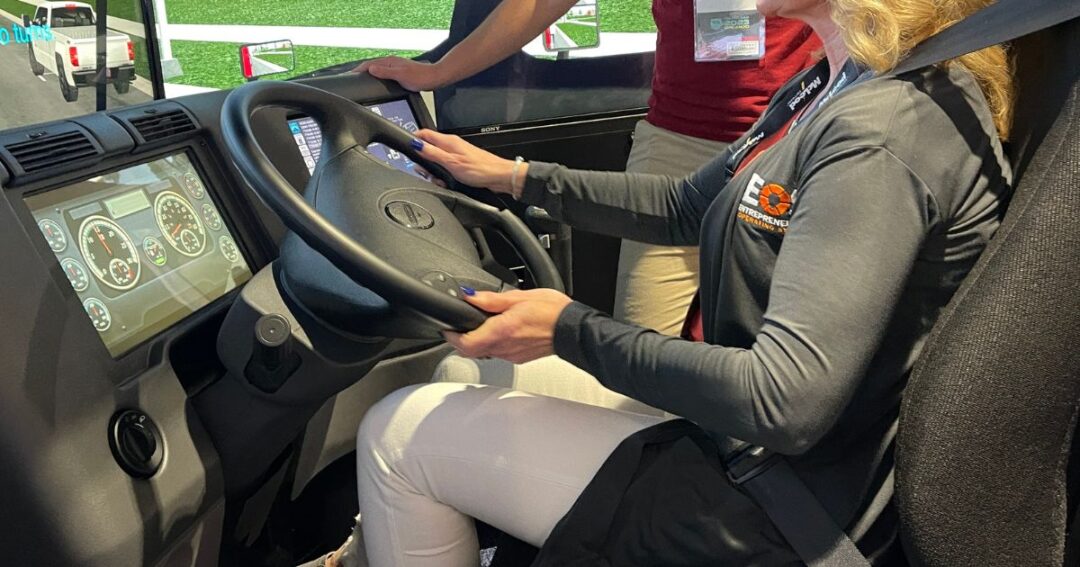
Building a Successful Trucking Career
Embarking on a trucking career is more than just earning a CDL; it’s about finding a place within the industry where you can grow, thrive, and achieve long-term success.
Key to this journey is identifying the right company fit from the start. Researching potential employers, understanding their culture, values, and how they support their drivers can make a significant difference.
It’s also beneficial to consider the types of routes available, home time policies, and career advancement opportunities.
Finding a company whose goals align with your personal and professional aspirations can set the stage for a fulfilling career.
Sticking with your first job for a considerable period can play a crucial role in establishing a solid foundation in trucking.
Job hopping, especially in the early years, can be seen as a red flag by future employers and may hinder career progression.
Demonstrating commitment and reliability by staying with one company allows you to build experience, reputation, and potentially move into more desirable positions or routes as they become available.
The potential for career advancement within the trucking industry is vast. Drivers who show initiative, safety consciousness, and a strong work ethic can move into roles such as trainer, dispatcher, or even management positions.
Being open to different types of driving assignments and willing to take on challenges can also open doors to specialized and higher-paying driving jobs, such as hauling oversized loads or hazardous materials.
Continuous learning and adaptability are invaluable traits in the fast-evolving trucking industry.
Staying updated with the latest regulations, technology, and best practices through ongoing education can enhance your value as a driver.
Maintaining positive relationships with dispatchers and colleagues not only makes the daily work more enjoyable but also helps in building a network of support and opportunities.
As the industry continues to grow and evolve, those who are willing to learn, adapt, and build positive professional relationships will find themselves well-positioned for success in trucking.
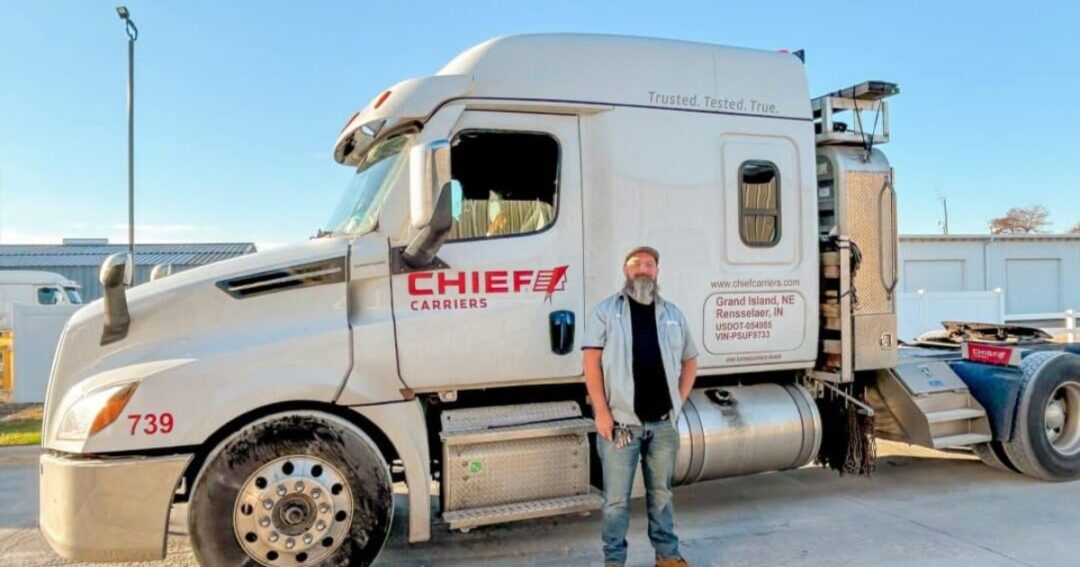
The Journey to a CDL
In our journey through the world of trucking, from CDL training to embarking on a successful career, the central theme remains clear: thorough preparation and education are indispensable.
CDL training is not just a regulatory requirement but a foundation upon which safe and proficient driving careers are built.
The insights shared in both the podcast episode and this blog post underscore the multifaceted nature of trucking, highlighting the importance of hands-on experience, theoretical knowledge, and the personal growth that comes from navigating the industry’s challenges.
The stories and advice from seasoned professionals like Ed Lewis and Ryan Cook remind us of the dedication required to not just enter, but to thrive in the trucking industry.
Their experiences reinforce the value of persistence, the necessity of financial and emotional preparation, and the endless opportunities for growth that trucking offers.
For those intrigued by the snippets of wisdom shared here, the full podcast episode offers much more. I encourage you to listen to the complete discussion on driventoofar.com, Spotify, Apple Podcasts, or YouTube.
Dive deeper into the personal stories, detailed advice, and professional insights that can only be fully appreciated in their original form.
To aspiring and current truck drivers, your journey is one of courage, commitment, and continuous learning.
The road ahead is both challenging and rewarding, filled with opportunities for growth and achievement. Remember, success in trucking is not just about reaching destinations but about the journey, the people you meet, and the lives you touch along the way.
Let this blog be a stepping stone in your ongoing journey in the trucking industry.
Stay driven, stay safe, and keep pushing forward, knowing that “Driven Too Far” is here to support you every mile of the way.
Visit Northeast College for more information on CDL training.
Andrew Winkler
Andrew Winkler is the only executive in the trucking industry willing to get in the cab and listen to you. He started out in the driver’s seat like you–loving a life on the road, missing a family at home, and yelling at dispatch over the phone. He knows how it feels to be driven too far, which is why he’s giving you the truth about trucking so you can have both your family and your career.
Interested in having Andrew Winkler appear as a guest on your show? Have a show topic idea? Want to appear as a guest on Driven Too Far? Have a question?
Are you a new or veteran truck driver looking for a carrier that values their drivers check out Chief Carriers.

